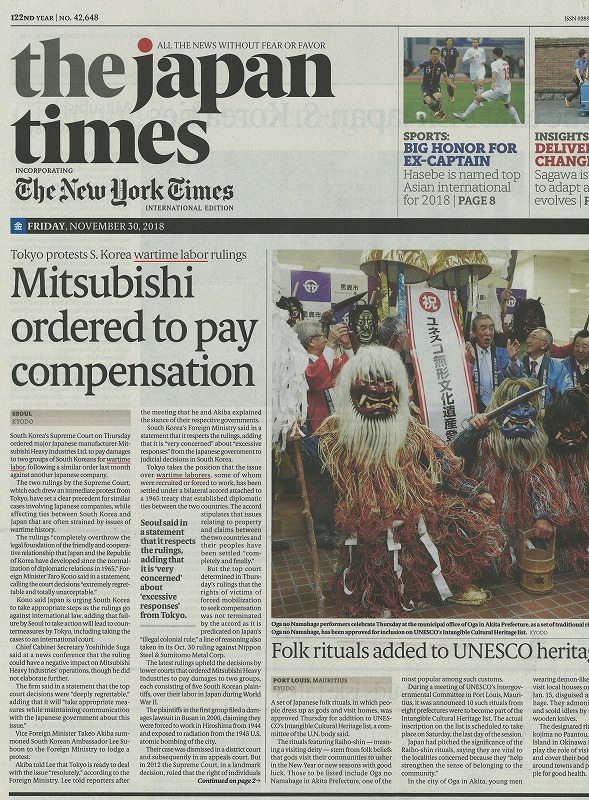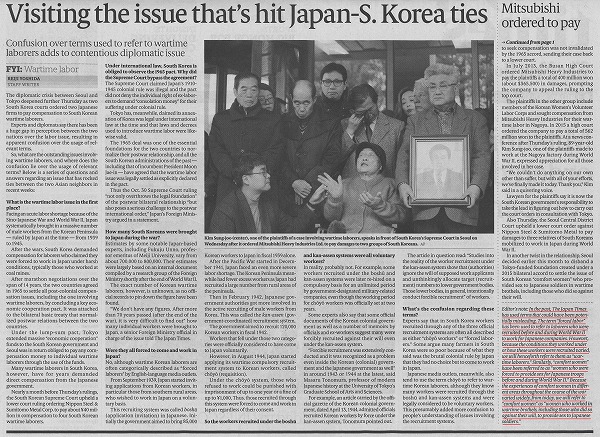The Japan Times carried an editor’s note in its November 30th issue to inform readers of a change over terms used to refer to wartime Korean workers in Japan.
The editor’s note says: In the past, The Japan Times has used terms that could have been potentially misleading.The term “forced labor”has been used to refer to laborers who were recruited before and during World War II to work for Japanese companies.However, because the conditions they worked under or how these workers were recruited varied, we will henceforth refer to them as “wartime laborers.”
Prior to this Japan Times’ announcement, the Japan Institute for National Fundamentals (JINF) carried in its website dated November 14 a proposal that says: What is wrongly referred to as “requisitioned” and or “compulsorily recruited” laborers (from the Korean Peninsula in the wartime past) should be correctly called “wartime Korean workers.”
In its proposal, the JINF said that the processes of Japan's wartime labor mobilization on the Korean Peninsula during World War II were categorized into three types, depending on when the mobilization was implemented: recruitment by private-sector companies on their own; employment by private companies through the good offices of the government; and “requisition” through the application of the National Requisition Ordinance. Irrespective of these categories, Koreans were all employed by privately operated companies, getting paid well in general.
As a matter of the use of language, the Japanese government is convinced that the expression of “requisitioned laborers” is not adequate (as regards a litigation in South Korea), but four plaintiffs should be called laborers hailing from the former Korean Peninsula. They all got employment in response at their own discretion to ‘recruitment by the company.’
When it comes to news reports, however, the wrong expression of “requisitioned laborers” has still been used in abundance. In addition, not only news media abroad but also those in Japan such as the English versions of The Asahi Shimbun and Kyodo News as well as The Japan Times, an English language daily-have frequently been using the English term “forced labor” in connection with the South Korean litigation.
Recent Activities
Japan Institute for National Fundamentals
2-6-1 Hirakawa-cho Chiyoda-ku,Tokyo 102-0093 JAPAN
2-6-1 Hirakawa-cho Chiyoda-ku,Tokyo 102-0093 JAPAN
COPYRIGHT © 2026 Japan Institute for National Fundamentals



